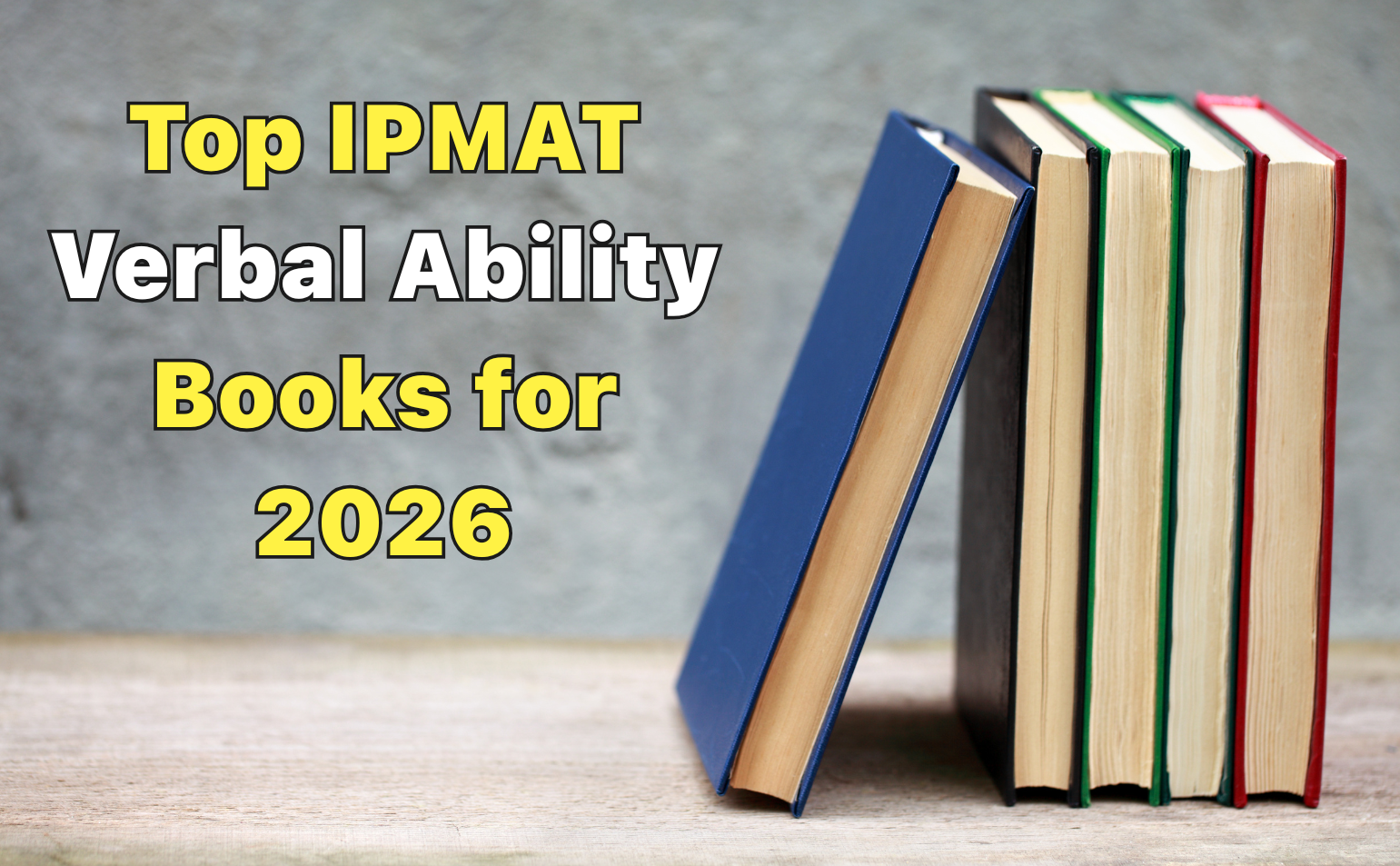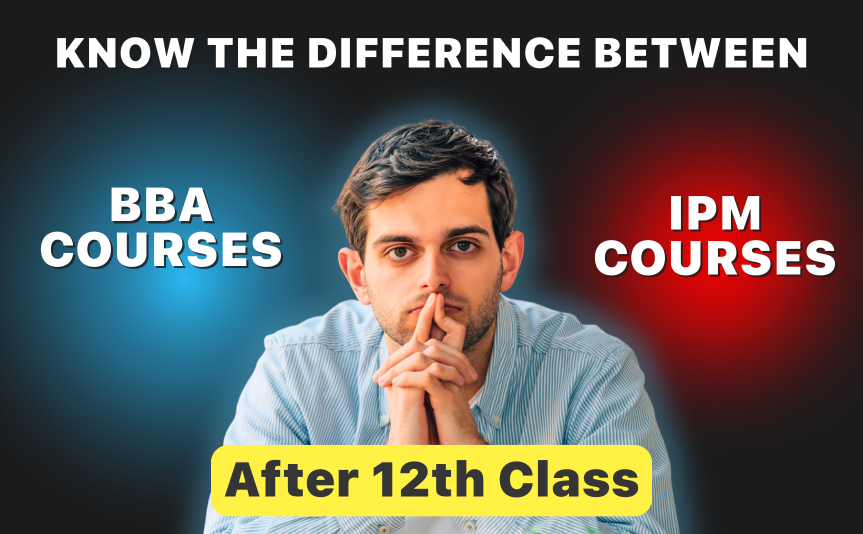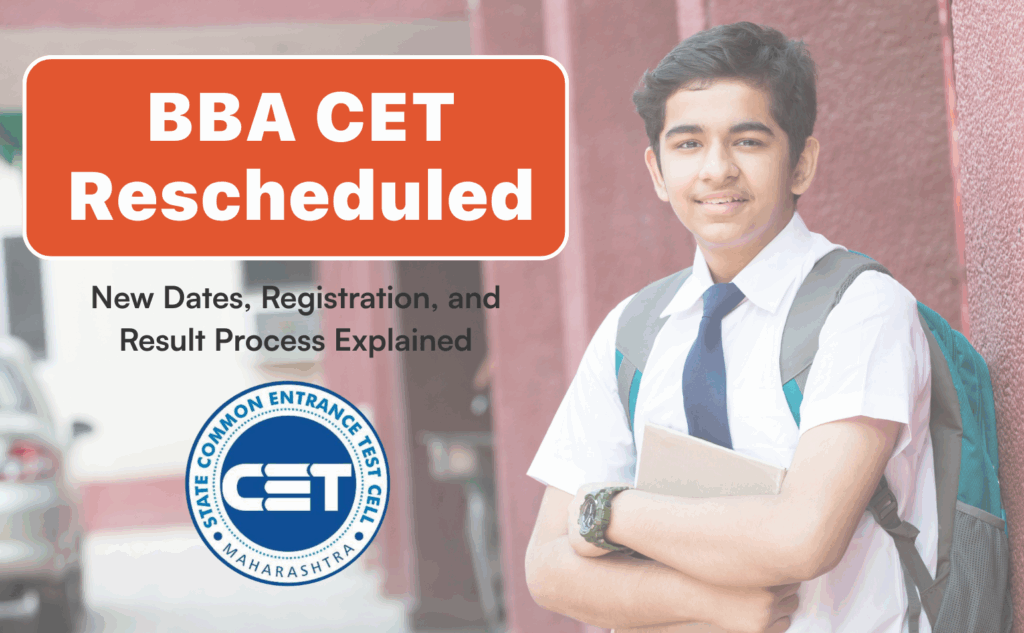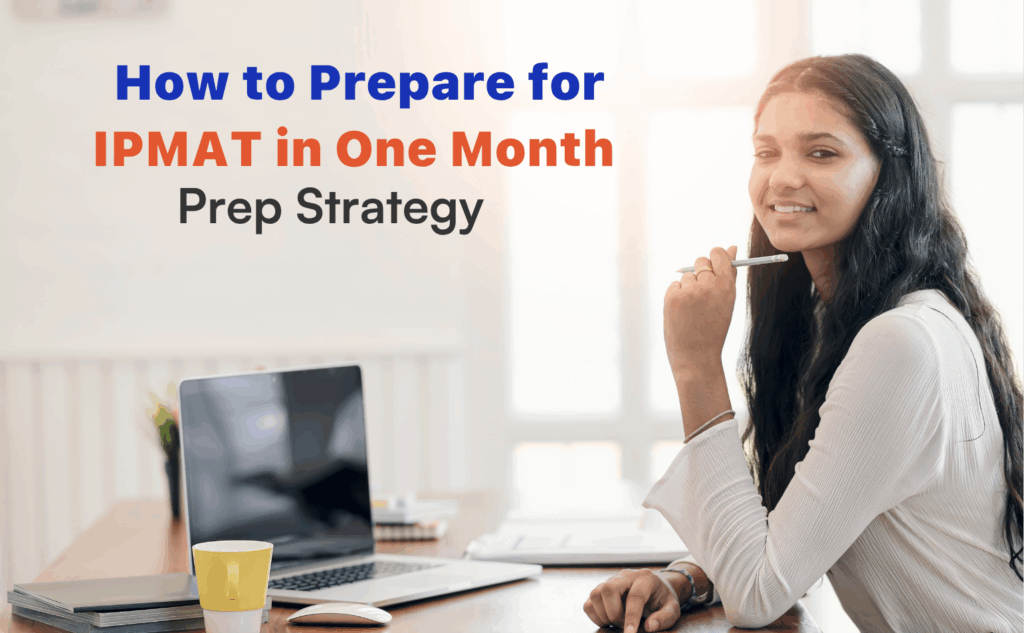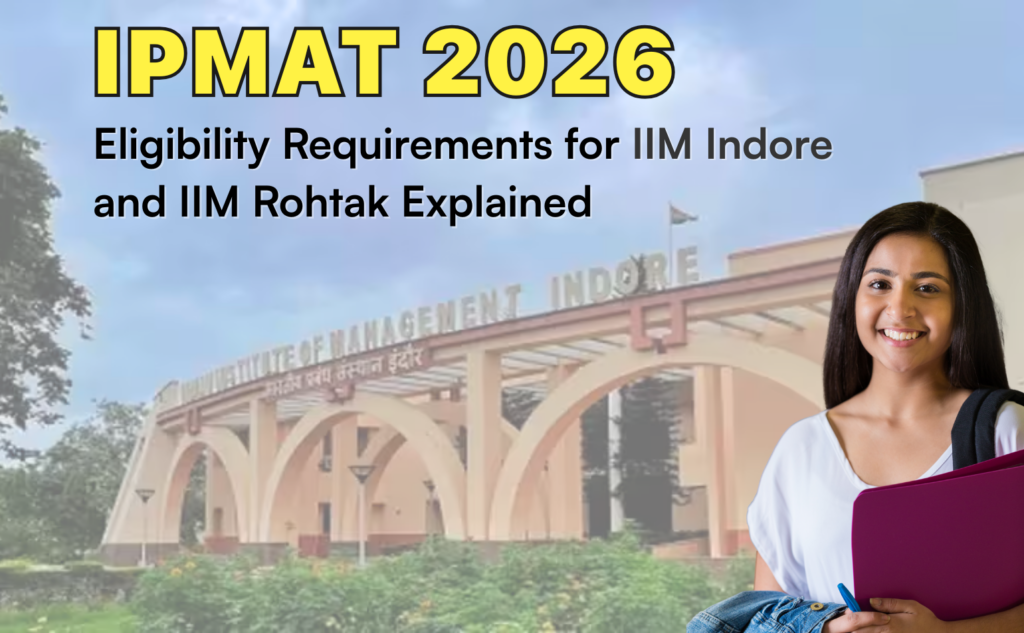The Ultimate Guide to Ace the Verbal Section of IIM Indore and IIM Rohtak Entrance Exams
If you’re aiming for IIM Indore or IIM Rohtak through IPMAT 2026, mastering Verbal Ability (VA) is non-negotiable. The Verbal Ability section is designed to assess grammar, vocabulary, and reading comprehension capabilities, and constitutes a significant chunk of the examination.
And if you’ve been wondering, “Which are the best verbal ability books for IPMAT 2026?“ — you’re in the right place because choosing the right resources for preparation can significantly influence your results.
In this blog, we’ll break down
- the top IPMAT Verbal Ability books
- how to use them, topic-wise strategies
- and tips to help you ace the exam.
Whether you’re just starting your prep or looking to level up your performance, this guide is all you need.
What is the Verbal Ability Section of IPMAT?
The Verbal Ability section tests a candidate’s English language proficiency through diverse question types such as:
- Vocabulary (Synonyms, Antonyms, Idioms & Phrases)
- Reading Comprehension (Inference, Tone, Main Idea)
- Grammar (Sentence Correction, Sentence Completion, and Rearrangement)
The weightage of this section is high, making it one of the critical components in determining overall scores. Therefore, mastering this area can provide a strategic advantage.
Why Focus on Verbal Ability for IPMAT?
The Verbal Ability section in IPMAT (especially IIM Indore’s version) is not just about grammar. It includes:
- Reading Comprehension (RC)
- Vocabulary-based questions
- Para jumbles
- Sentence correction
- Fill in the blanks
- Inference and Critical Reasoning
In IPMAT Indore, this section carries 45 questions in 40 minutes, while IPMAT Rohtak usually includes around 40 questions.
A firm grasp of Verbal Ability is essential for two reasons:
- Direct impact on selection – Cut-offs in the VA section can be high.
- WAT-PI readiness – Strong verbal skills help in writing ability tests and interviews later.
Why Choosing the Right Book for the Verbal Ability Section of IPMAT Important?
A well-rounded book can go beyond teaching concepts, helping you practice problem-solving and develop strategies to handle questions efficiently. Here are some benefits of picking the right Verbal Ability books:
- Comprehensive coverage of essential grammar rules and vocabulary.
- Examples and exercises tailored to mimic the actual exam format.
- Practice sets that improve time management.
By using these resources effectively, aspirants can develop the speed and accuracy needed for exam success.
Best Verbal Ability Books for IPMAT 2026
Here’s a carefully curated list of the best books for verbal ability to crack IPMAT, based on inputs from toppers, mentors, and academic experts.
- Word Power Made Easy by Norman Lewis
- Why it works: Builds vocabulary in a contextual, structured way.
- What to focus on: Root words, exercises, and sentence usage.
- Best for: Daily vocabulary building & synonym-antonym practice.
- Tip: Use this as a 30-day challenge. 1 session a day will show results quickly.
- High School English Grammar and Composition by Wren and Martin
- Why it works: Fundamental grammar rules that form the base for sentence correction and usage questions.
- What to focus on: Parts of speech, tenses, sentence structure, standard errors.
- Best for Grammar concepts & practice questions.
- Must-do: Don’t just read rules—solve the exercises and check solutions carefully.
- Brush Up Your English by ST Imam
- Why it works: A concise guide covering grammar, vocabulary, and comprehension with practical exercises tailored for competitive exams.
- What to focus on: Mixed practice sets, vocabulary building, and grammar refreshers.
- Best for: Students seeking a balanced and exam-oriented practice resource.
- Tip: Use this for quick revisions and final-stage preparation.
- Better English by Norman Lewis
- Why it works: Focuses on eliminating common language mistakes and improving clarity in verbal communication.
- What to focus on: Spelling corrections, pronunciation, sentence improvement, and grammar clarity.
- Best for: Fine-tuning language skills and avoiding typical errors.
- Use case: Ideal for brushing up before mock tests and interviews.
- How to Prepare for Verbal Ability and Reading Comprehension by Arun Sharma & Meenakshi Upadhyay (TMH)
- Why it works: CAT-level book helps tackle higher-level RCs and critical reasoning.
- What to focus on: RC passages, para jumbles, summary questions, and vocabulary-based RCs.
- Best for: Advanced learners and those aiming for high accuracy in RC.
- Strategy: Do 1 RC + 3 VA topic exercises daily from this book for consistent improvement.
- Objective General English by S.P. Bakshi (Arihant)
- Why it works: Easy-to-understand format with practice sets after each chapter.
- What to focus on: Spotting errors, idioms, one-word substitutions, fill in the blanks.
- Best for: Practice-oriented learners who need to build speed.
- Practice hack: Solve 25 error spotting + 25 fill-in-the-blanks questions daily.
- Word Power Champion: 100 Words That Make You Sound Smart (Reader’s Digest)
- Why it works: Builds practical vocabulary that appears in RCs and para completions.
- What to focus on: Daily word dose usage in contemporary sentences.
- Best for: Quick vocabulary enhancement and smart word usage.
- Bonus Tip: Try using 5 new words from the book in your daily conversations or writing to retain them better.
Topic-Wise Book Suggestions
| Topic | Recommended Book(s) |
| Vocabulary | Word Power Made Easy, Word Power Champion, Better English |
| Grammar & Sentence | Wren & Martin, Objective General English, Brush Up Your English, Better English |
| Reading Comprehension | Arun Sharma’s VA-RC Book, Editorials from The Hindu / Indian Express |
| Para jumbles | Arun Sharma’s VA-RC, Online mocks and sectional tests |
| Sentence Correction | Objective General English, Wren & Martin, Brush Up Your English |
| Idioms & Phrases | S.P. Bakshi, Online quizzes, Flashcards |
| Synonyms & Antonyms | Word Power Made Easy, S.P. Bakshi |
Supplementary Resources You Shouldn’t Miss
Apart from books, utilizing additional resources can further strengthen your preparation:
- Newspapers like The Hindu or The Indian Express: Enhance comprehension, vocabulary, and analytical thinking through editorials.
- Wordweb (Online Dictionary): Build vocabulary with definitions, synonyms, and usage examples.
- Online Portals: Take IPMAT-specific verbal ability quizzes on Tarkashastra, and similar platforms.
- Flashcards: Use apps like Anki for daily vocabulary revision.
- Tarkashastra Study Material for additional practice questions and mock tests.
Criteria for Selecting IPMAT Verbal Ability Books
When choosing a book for preparation, keep the following criteria in mind:
- Syllabus Coverage: Ensure the book fully addresses grammar, vocabulary, and comprehension-based questions.
- Practice Material: Look for books containing mock tests or sample questions similar to IPMAT formats.
- Author Credibility: Books by authors with expertise in competitive exam preparation make a significant difference.
- Clarity & Structure: Excellent books focus on easy-to-understand explanations for various difficulty levels.
- Additional Resources (online tests, apps): Modern preparation tools often supplement physical learning material.
How to Use Verbal Ability Books Effectively
While owning the best books is essential, how you utilize them matters most. Follow these steps to maximize your preparation time:
Step 1: Foundation Building
Start with basics by mastering grammar rules and vocabulary. Books like Wren and Martin and Word Power Made Easy are ideal. Dedicate time daily to practice.
Step 2: Practice with Context
Move to graded exercises in resources like Brush Up Your English or Better English. Focus on comprehension and paragraph rearrangement. Devote at least an hour daily to diverse problem types.
Step 3: Mock Tests and Revision
Books such as The Grand Masters Box come with mock test papers. Regularly solving these tests improves speed and gives you practical experience applying concepts. Periodically revise grammar notes or word lists.
Step 4: Integrating Newspapers and Reading
Supplement your bookish knowledge by reading editorial sections from newspapers. Focus on unfamiliar words and utilize dictionaries to understand meanings.
Step 5: Monitor Progress
Track areas where you struggle and revisit those chapters. Books like Word Power Made Easy include revision sections that can reinforce weak concepts.
Preparation Strategy To Conquer IPMAT Verbal AbilitySection
Daily Goals for Verbal Ability Prep
A structured routine amplifies efficiency. Here’s an example of a day’s schedule:
- Grammar Review (from Wren & Martin): 30 minutes
- Vocabulary Building (Word Power Made Easy): 30 minutes
- Reading Comprehension Practice (newspaper section): 20 minutes
- Solving Mock Papers or Exercises (Grand Masters Box): 30 minutes
Weekly Focus Areas
Dedicate specific weekdays to focused topic reviews:
- Monday/Tuesday: Sentence completion and grammar corrections
- Wednesday/Thursday: Vocabulary review through flashcards and online quizzes
- Friday: Speed-reading passages with comprehension exercises
Tips to Succeed in IPMAT Verbal Ability
- Consistency over Intensity
Daily incremental improvement yields better results than a one-time intensive study.
- Timing is Everything
During mock tests, aim for swift yet accurate responses. Break sections into smaller time intervals.
- Focus on Weak Areas
Analyze test results to target weak points like sentence correction or analogies.
- Learn Actively
Engage with each book by summarizing chapters or discussing concepts with peers.
Why Invest in Verbal Ability Preparation?
Due to its scoring potential, the Verbal Ability section is often the deciding factor. You can maximize this advantage by aligning your preparation with the right study materials, strategy, and consistent workload—increasing your likelihood of clearing cutoffs.
Final Words: Build Verbal Strength the Right Way
Clear grammar, a rich vocabulary, and precise comprehension skills can transform your approach to competitive exams. Selecting the right verbal ability books for IPMAT 2026 can make all the difference. Focus on understanding concepts, daily vocabulary building, and consistent reading and practice.
If you’re looking for expert mentorship, structured test series, and personalized doubt-solving, Tarkashastra’s IPMAT 2026 Preparation Program can guide your child step-by-step.
Take action today:
- Sign up for a free mock test.
- Enroll in Tarkashastra’s verbal ability coaching programs designed to match the demands of competitive exams.
Still confused and need help choosing the right preparation path? Visit www.tarkashastra.co.in or message us on WhatsApp to talk to a mentor directly.
Frequently Asked Questions (FAQs)
- What Is the Verbal Ability Section in IPMAT?
The Verbal Ability section assesses grammar, vocabulary, comprehension, and reasoning. It includes RCs, para jumbles, fill-in-the-blanks, and sentence correction questions.
- How Many Questions Are There in the Verbal Section of IPMAT Indore?
IPMAT Indore includes 45 verbal ability questions to be solved in 40 minutes.
- Is the Verbal Section the Same for IPMAT Indore and IPMAT Rohtak?
No. While both exams test similar topics, the pattern, number of questions, and difficulty level vary slightly between Indore and Rohtak.
- Are CAT Verbal Ability Books Good for IPMAT?
Yes, especially for IIM Indore’s IPMAT, which includes RCs and reasoning-based VA. Use them selectively for relevant topics.
- Should I Read Novels or Books to Improve My VA?
Reading fiction and non-fiction helps, especially with comprehension. Start with authors like Ruskin Bond and Agatha Christie or business articles from Harvard Business Review.
- How Many RCs Should I Solve Per Week?
Target at least 4–5 RCs per week initially and increase to 10 per week during peak prep months.
- Are Online Mock Tests Useful for Verbal Preparation?
Absolutely. Online mocks simulate the actual IPMAT environment and help improve speed, accuracy, and time management.
- Why Is Verbal Ability Important in the IPMAT Exam?
Verbal Ability is crucial because it contributes significantly to your overall IPMAT score and directly impacts shortlisting. It also strengthens your performance in the later WAT-PI rounds, which assess written and spoken communication skills.
- Is ‘Word Power Made Easy’ Useful for IPMAT Verbal Ability Preparation?
Yes, absolutely. Word Power Made Easy is one of the most effective books for building a strong vocabulary foundation, which is critical for RC, fill-in-the-blanks, and synonym/antonym-based questions in IPMAT.
- How Can I Improve My Reading Comprehension Skills?
Practice daily RC passages from books and newspapers like The Hindu or Indian Express, focusing on speed, tone, inference, and main idea.
- What Are the Best Books to Prepare for the Verbal Ability Section of IPMAT 2026?
Top recommended books include:
- Word Power Made Easy by Norman Lewis – Best for daily vocabulary building and synonym-antonym practice.
- High School English Grammar & Composition by Wren & Martin – Ideal for mastering grammar rules and sentence correction.
- Brush Up Your English by ST Imam – Covers grammar, vocabulary, and comprehension with practical exercises.
- Better English by Norman Lewis – Helps eliminate common language mistakes and improve clarity.
- How to Prepare for Verbal Ability and Reading Comprehension by Arun Sharma & Meenakshi Upadhyay – Great for advanced RC and para jumbles.
- Objective General English by S.P. Bakshi – Provides practice-oriented grammar, idioms, and fill-in-the-blank questions.
- Word Power Champion by Reader’s Digest – Builds smart, practical vocabulary for RCs and para completions.
- Can I Use CAT Preparation Books for IPMAT Verbal Ability?
Yes, selectively. Books like Arun Sharma’s Verbal Ability and RC are helpful, especially for practicing Reading Comprehension and para-based questions. However, skip overly complex CAT-level queries and focus on topics relevant to IPMAT.
- Is Wren & Martin Still Relevant for IPMAT 2026 Grammar Preparation?
Yes. Wren & Martin remains a gold standard for grammar fundamentals. It helps you master essential rules and sentence structures frequently tested in IPMAT’s grammar-based questions.
- Which Book Is Best for Practicing Reading Comprehension for IPMAT?
The best resource is How to Prepare for Verbal Ability and Reading Comprehension by Arun Sharma & Meenakshi Upadhyay. It includes various RC passages with explanations and is ideal for building accuracy and speed.
- Are There Books That Cover Both Vocabulary and Grammar for IPMAT?
Yes. Objective General English by S.P. Bakshi is a balanced book covering grammar, vocabulary, idioms, and sentence usage. It’s ideal for all-around verbal preparation.
- What Topics Should I Focus on for IPMAT Verbal Preparation?
Key topics include Reading Comprehension, Vocabulary, Grammar, Para Jumbles, Sentence Correction, and Inference-based questions.
- Is Vocabulary More Important Than Grammar in IPMAT?
Both are important. Vocabulary helps in RCs and fill-in-the-blanks, while grammar is essential for sentence correction and usage-based questions.
- What Level of English Proficiency Is Required for IPMAT?
You need at least an upper-intermediate level of English (Class 10–12 standard). Proficiency in grammar, vocabulary, and comprehension is essential, along with the ability to infer meanings and understand the context in RC passages.
- What Is the Best Strategy to Prepare for IPMAT Verbal Ability?
Build a strong foundation in grammar and vocabulary, practice daily RCs, take sectional tests weekly, and revise consistently using trusted books and resources.
- Which Book Is Best for Grammar Practice for IPMAT?
Wren and Martin are the best for fundamentals, while S.P. Bakshi offers exam-focused practice exercises.

